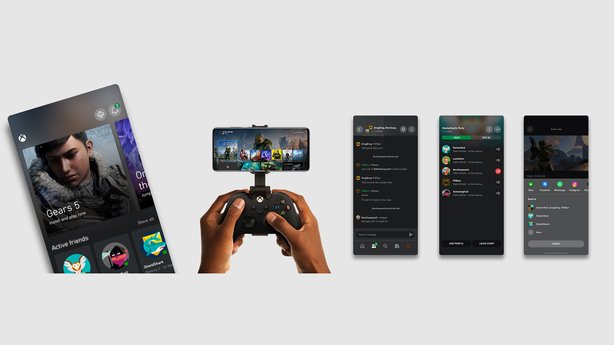Whats is the Future of Gaming Means for Developers

From virtual reality to artificial intelligence, technologies are shaping the future of video games.
In early 2019, Netflix CEO Reed Hastings told shareholders what he thought was the company’s stiffest competition. It wasn’t HBO, Disney+ or Amazon. It wasn’t cable television or movie theaters either. In his estimation, the biggest threat to Netflix’s continued dominance in entertainment was the video game Fortnite.
From ‘what to watch’, the answer is increasing to ‘no, I’m going to play a game.’ Often people are choosing to reach for a game controller instead of a TV remote.
In 2019, the gaming industry generated $120 billion in revenue, and experts predict it could reach $200 billion within two years; 100 million viewers tuned in to watch players compete in the World Championship of the game League of Legends a larger haul than the telecast of the Super Bowl; and, by 2021, it’s projected that 2.7 billion people about one-third of the global population will be gamers.

GAMING INDUSTRY REVENUE IN 2019 (SOURCE: SUPERDATA)
- Mobile gaming: $64.4 billion
- PC gaming: $29.6 billion
- Console gaming: $15.4 billion
- Game-related videos: $6.5 billion
- VR and AR gaming: $6.3 billion
Big tech companies are seizing the moment: Apple, Google and Amazon are all developing gaming products.
Xbox Game Pass and Project xCloud together at no additional cost for Xbox Game Pass Ultimate members – unleashing the power of gaming by making it more accessible than ever before. This September, in supported countries, gamers will be able to play more than 100 Xbox Game Pass titles on their phones or tablets, from the cloud, as a part of their Xbox Game Pass Ultimate membership. This is one of many creator focused breakthrough innovations.
As an industry, we are moving from a world of device-centricity to a place where players, their friends, and their content becomes the center focus. This shift creates incredible challenge and opportunity for game makers. As players increasingly demand that their gaming experience span devices, creators must have the platform, tools, and services to deliver that experience. The days of having to manage a multitude of builds, game instances and communities across device types and brands will be relegated to the past unlocking access to more players, opening up revenue opportunities, and expanding gaming communities.
Culturally, it seems that gaming has broken out of niche corners of the world and will only continue to become more mainstream. But what tech innovations are shaping the future of video games, and how will they influence the gaming experience?
ARTIFICIAL INTELLIGENCE IN VIDEO GAMES:
Artificial intelligence is no longer the stuff of science fiction; it’s lodged itself into the fabric of our everyday lives from Gmail’s Smart Compose to self-driving cars to facial recognition software. Video games are no exception

The idea of AI has been expressed in gaming for decades — most prominently in non-player characters (NPCs), like the colorful ghosts in Pac-Man or the innocent bystanders in Grand Theft Auto.
In recent years, gamemakers have taken a more sophisticated approach to NPCs. For example, some are now programmed with a behaviour tree, which enables them to perform more complex decision-making. The enemy aliens in Halo 2, for example, have the ability to work together and coordinate their attacks, rather than heedlessly beeline into gunfire one by one like they’re in a cheesy action movie.
Wrapping it up !
Games are a pretty conservative industry, in terms of the willingness that publishers or studios have to take risks. Artificial Intelligence isn’t just part of the gameplay experience. It’s part of the game-making experience. For several years now, designers have been using AI to help them create games.
If the current trends and future forecasts of the gaming industry clue us into anything about ourselves, it’s that our desire to escape is far outpaced by our desire to connect.





